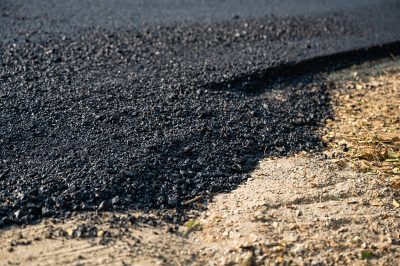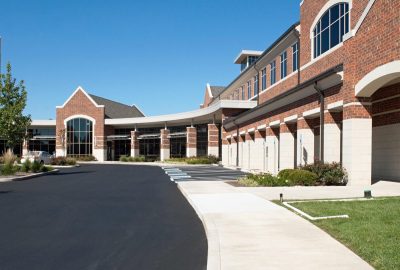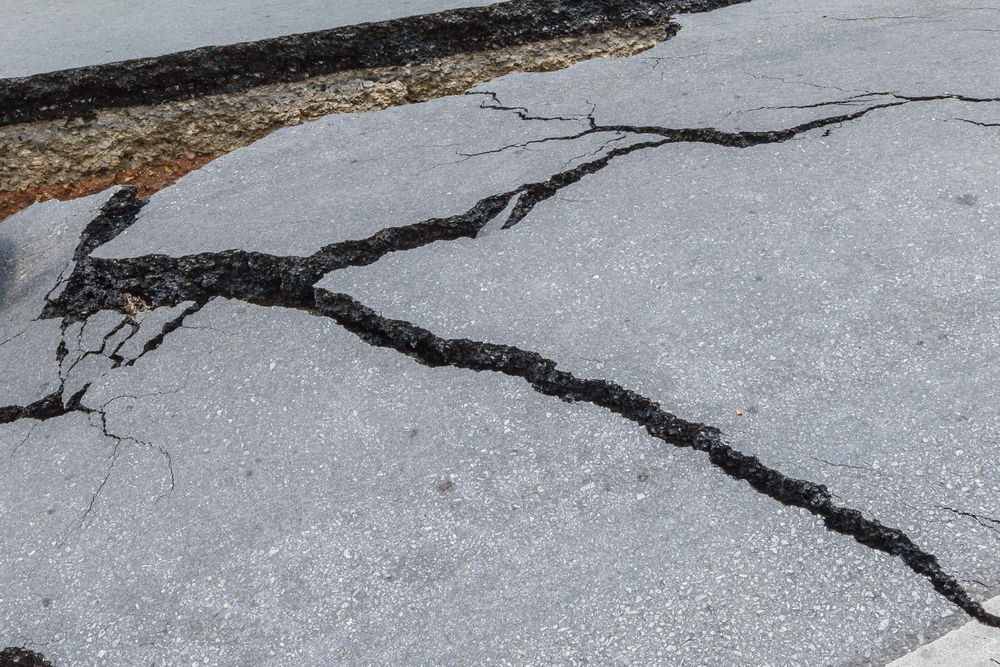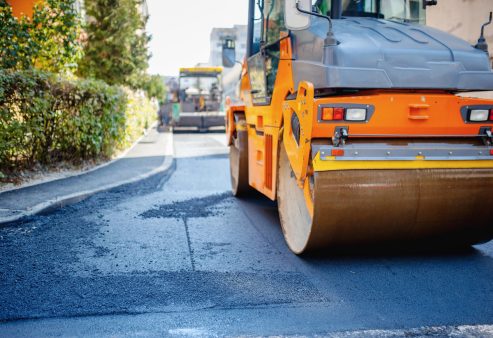Table of Contents:
- Key Takeaways
- The Recyclability of Asphalt
- a. Circular Economy
- b. Landfill Diversion
- c. Resource Preservation
- Energy Efficiency in Asphalt Production
- a. Modern Processes
- b. Reduced Energy Use
- c. Emission Control
- Long-Term Environmental Benefits
- a. Durability
- b. Low Maintenance
- c. Lifecycle Impact
- Enjoy The Benefits Of Choosing Asphalt As Your Paving Choice
Asphalt is among the world’s most recycled materials, which minimizes waste and preserves resources. It’s easier to produce and install, and requires less energy than other materials. Contemporary asphalt mixes can include recycled components, optimizing ecological benefits.
These characteristics render asphalt a functional option for green initiatives without sacrificing strength or economy. If you’re considering a paving project, we can help you choose an option that’s both durable and eco-friendly. Reach out to us today and let’s create a solution that fits your needs and budget. For your asphalt jobs, allow us to assist you at TurnKey Asphalt.
Key Takeaways
- Asphalt is 100% recyclable, ensuring that it retains its quality and performance while minimizing waste and dependence on virgin resources. This creates a sustainable paving solution.
- Recycling asphalt enables a circular economy, where materials are reused infinitely, saving money and reducing the environmental footprint.
- By using recycled asphalt, we’re reducing landfill waste and preserving natural resources such as sand, gravel, and bitumen.
- Asphalt production uses surprisingly little energy, particularly warm mix asphalt (WMA) and local sourcing innovations that cut energy consumption and emissions even further.
- Long-lasting and easy to maintain, asphalt pavements require less frequent replacement and repair, which conserves resources and lessens environmental strain.
- Asphalt’s recyclability, energy efficiency, and long lifespan make it an environmentally conscious choice for sustainable construction and paving.
The Recyclability of Asphalt

Asphalt is one of the most recyclable materials in the construction industry. Its capacity for reuse time and time again without degradation in quality or efficacy is what makes it a pillar of sustainable paving. Our reliance on RAP has changed the game for paving projects, drastically lowering the need for virgin materials and decreasing the environmental footprint.
Asphalt recycling is circular economy in action: materials remain in use forever. Old asphalt from roads, parking lots, and driveways gets reclaimed and processed for use in new projects, creating a closed-loop system. This method minimizes waste and dependency on virgin materials while preserving the pavement’s integrity.
On a practical level, recycling asphalt provides dollars for producers and customers. On an environmental scale, recycling provides greenhouse gas savings over raw material mining and production. The asphalt industry enthusiastically embraced sustainability, with companies finding new ways to recycle so they can maximize material reclamation and minimize adverse environmental impacts. In the recycling process, reclaimed asphalt pavement (RAP) is key to making recycling work at more than 99% recycled asphalt in some areas.
Asphalt recycling also diverts millions of tons of waste from landfills each year. The waste that is diverted comes from:
- Reusing old asphalt, rather than tossing it out.
- Decreasing landfill crowding and environmental concerns.
- Avoiding new material mining.
Additionally, asphalt recycling minimizes a paving project’s carbon footprint by reducing requirements for transportation and disposal. As a result, asphalt recycling is a major step in support of sustainable construction.
Recycling asphalt preserves vital natural resources, including sand, gravel, and bitumen. When the demand for virgin materials is reduced, there are significant environmental benefits. In particular, recycling asphalt saves:
- Resource aggregates (sand and gravel) are obtained through the reuse of existing ones.
- Bitumen, which is a nonrenewable byproduct from petroleum, is extracted through reduced mining.
- Energy through reduced operations in materials processing and transportation.
Energy Efficiency in Asphalt Production
Asphalt is still the most energy-efficient option for paving, with new advances in production and recycling. Because asphalt does not require as much energy to produce, and is a sustainable product, it lessens the environmental effects when compared to concrete.
1. Modern Processes
WMA (Warm Mix Asphalt) Technologies are low-temperature processes that can reduce temperatures by 30 to 120 degrees Fahrenheit, reducing fuel and emissions.
Innovations of this nature are key. RAP in the US alone saved more than 97 million tons of virgin materials in 2019– a clear indication that the world is moving in the right direction.
2. Reduced Energy Use
Asphalt takes less energy to produce than concrete — fewer emissions, less waste. Warm-mix methods conserve almost 25% more energy than hot mix. Asphalt plants are streamlining tasks — like preheating their aggregates — to save energy.
Recycling helps contribute to those savings once again. Because asphalt is 100% recyclable, this allows for virtually limitless reuse opportunities, and, in turn, less energy is needed for raw product extraction. When comparing better asphalt road surfaces, smoother asphalt roads could save an estimated 7 billion gallons of fuel per year, which would significantly lower greenhouse gas emissions as a group.
3. Emission Controls
Warm mix asphalt saves energy, also it creates less greenhouse gas emissions due to the fact that it can be produced at production temperatures of 50°F to 70°F. When RAP is added to the warm mix, the emissions amount can be closer to zero, as less virgin material is processed, and new asphalt is included. As such, asphalt is leading the way in emission savings over other paving products that will help fuel green infrastructure efforts worldwide.
Long-Term Environmental Benefits

Asphalt offers some of the best long-term environmental benefits, making it a genuinely sustainable choice for paving. Its durability, low maintenance needs, and long lifespan help reduce environmental impact, with these benefits growing even more over time.
Durability
Being an engineered product designed for exceptionally high weights in intensive weather conditions, asphalt roads and driveways – even for the occasional family car to eighteen-wheeler – can withstand many years of use and accept traffic volume without cracking and crumbling. This means less frequent replacements, reducing the use of raw materials and waste.
Resurfacing extends asphalt’s life by offering an economical method to reinstate its surface without needing a total rebuild. It can, for example, restore a 20-year-old asphalt surface with very little material, avoiding wasteful overbuilding. By picking asphalt, we pave enduringly dependable paths toward the future.
Low Maintenance
Asphalt requires significantly less maintenance than alternative paving materials. Sealcoating and pothole maintenance, for example, consume fewer resources and create less debris. This means fewer emissions from repair equipment and less environmental impact.
Less maintenance needs translate to savings for homeowners and cities, both in terms of money and natural resources. Asphalt’s usability as a low-maintenance material makes it a perfect choice for residential and commercial purposes, providing an eco-friendly solution for pavement.
Lifecycle Impact
Asphalt has a lower environmental footprint during its entire lifecycle. Its recyclability is crucial–nearly 99% of reclaimed asphalt pavement is repurposed, reducing the demand for new materials. Across the globe, the industry recycles 65 million tons of asphalt each year, saving landfill space and natural resources.
Its lifespan contributes to its green nature. One example is how a good asphalt surface can last for decades but help cut lifecycle emissions. Inventive porous paving systems reduce stormwater runoff and urban heat to promote greener infrastructure.
Enjoy The Benefits Of Choosing Asphalt As Your Paving Choice
Asphalt is green for smart paving, and because it can be reclaimed and reused countless times, it destroys less and requires less virgin material. Manufacturing has gotten more efficient, reducing emissions and resource use over time.
After it’s laid down, asphalt’s resilience reduces the necessity for constant maintenance, conserving supplies and expense in the long term. If you’re looking for a paving option that’s both cost-effective and environmentally friendly, asphalt is a smart investment. Let us help you choose the right solution for your property and needs. Contact us at TurnKey Asphalt for a smooth asphalt application.








 By TurnKey Asphalt
By TurnKey Asphalt  Aug 12, 2025
Aug 12, 2025 







